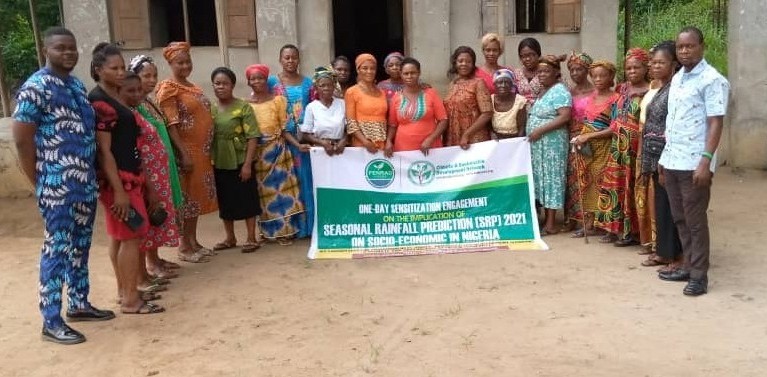
A member organisation of Climate and Sustainable Development Network (CSDevNet) in the South-east region of Nigeria, Foundation For Environmental Rights Advocacy & Development (FENRAD) organised a one-day workshop to sensitize rural farmers “on the implication of the SEASONAL RAINFALL PREDICTION (SRP) 2021” in responding to the prediction recently released by the Nigerian Meteorological Agency (NiMet).
The workshop was a capacity building training to equip the local farmers with basic knowledge and information on weather monitoring, climate change, disaster management, water supply and management among others.
The following are contained in a report released after the training workshop, titled, “Reports of the one-day stakeholders engagement on the NiMet prediction on the rainfall and climate conditions 2021”.
“The rainfall farming season is one important farming process that can likely wipe out farm seeds should one lack the techniques to tackle it. The Nigerian Metrological Agency (NiMet), is committed to ensuring that rainy seasons do not affect the process of farming. This is why the information to keep the farmers abreast of weather conditions are being periodically released.


